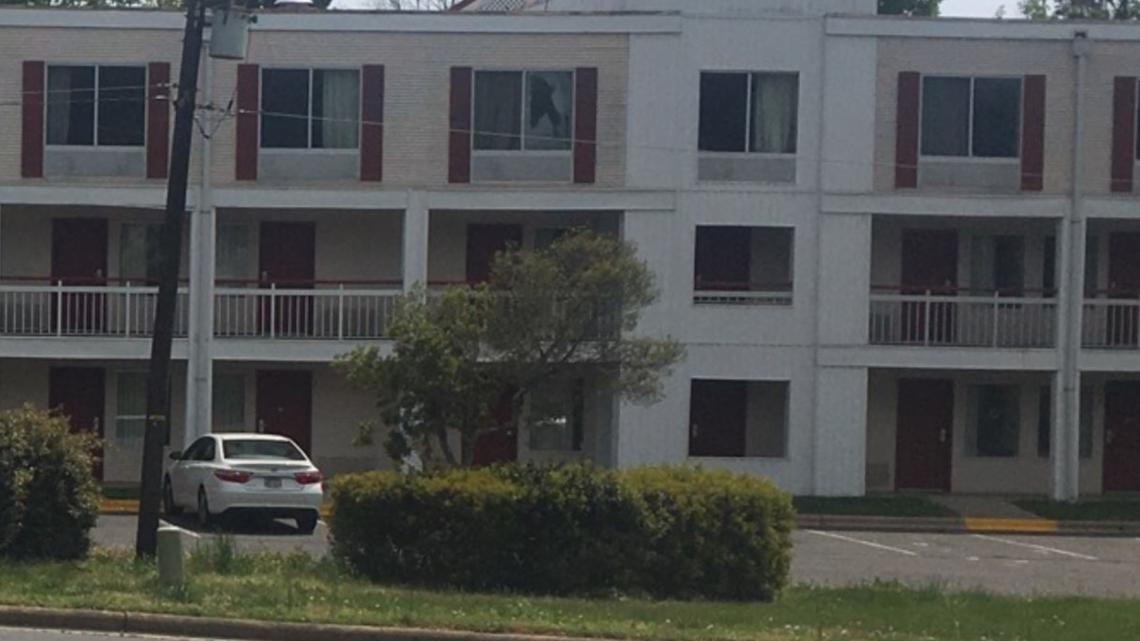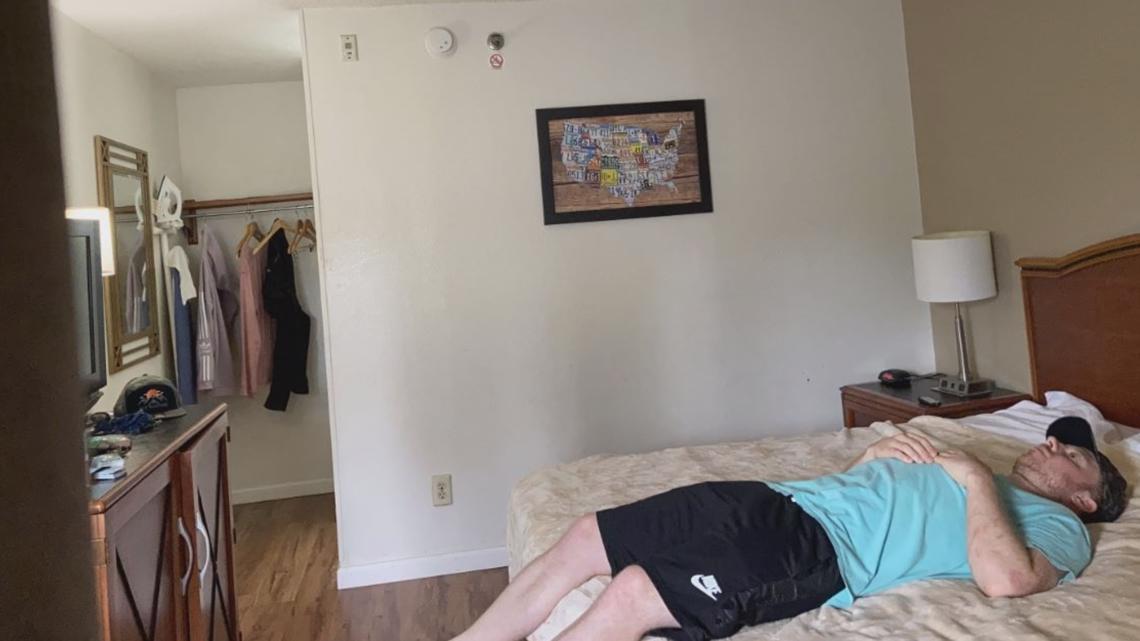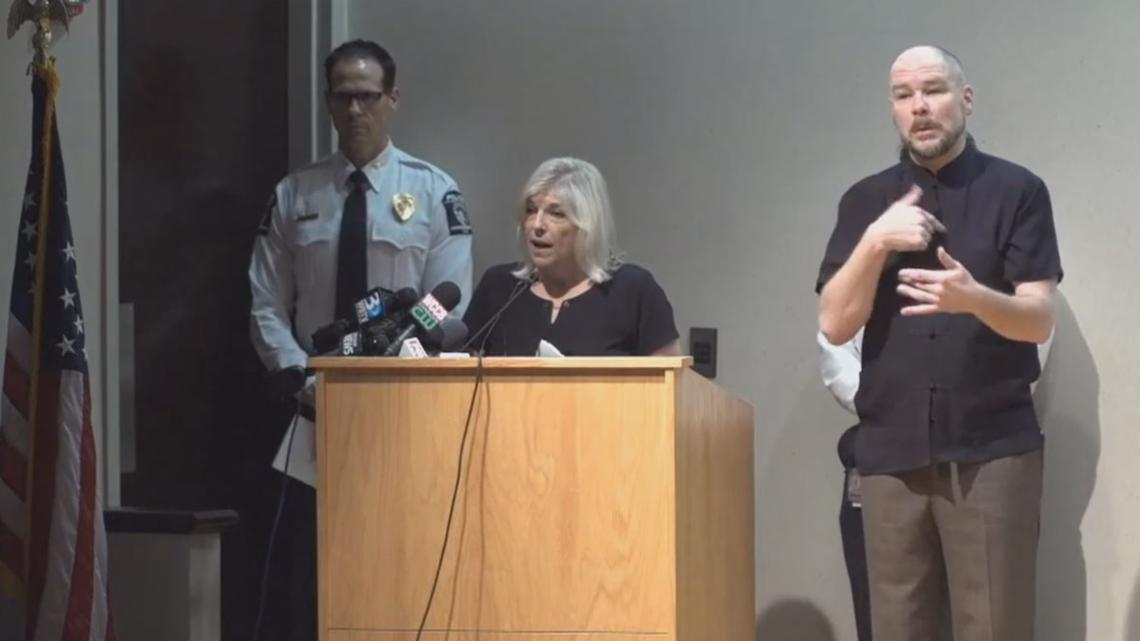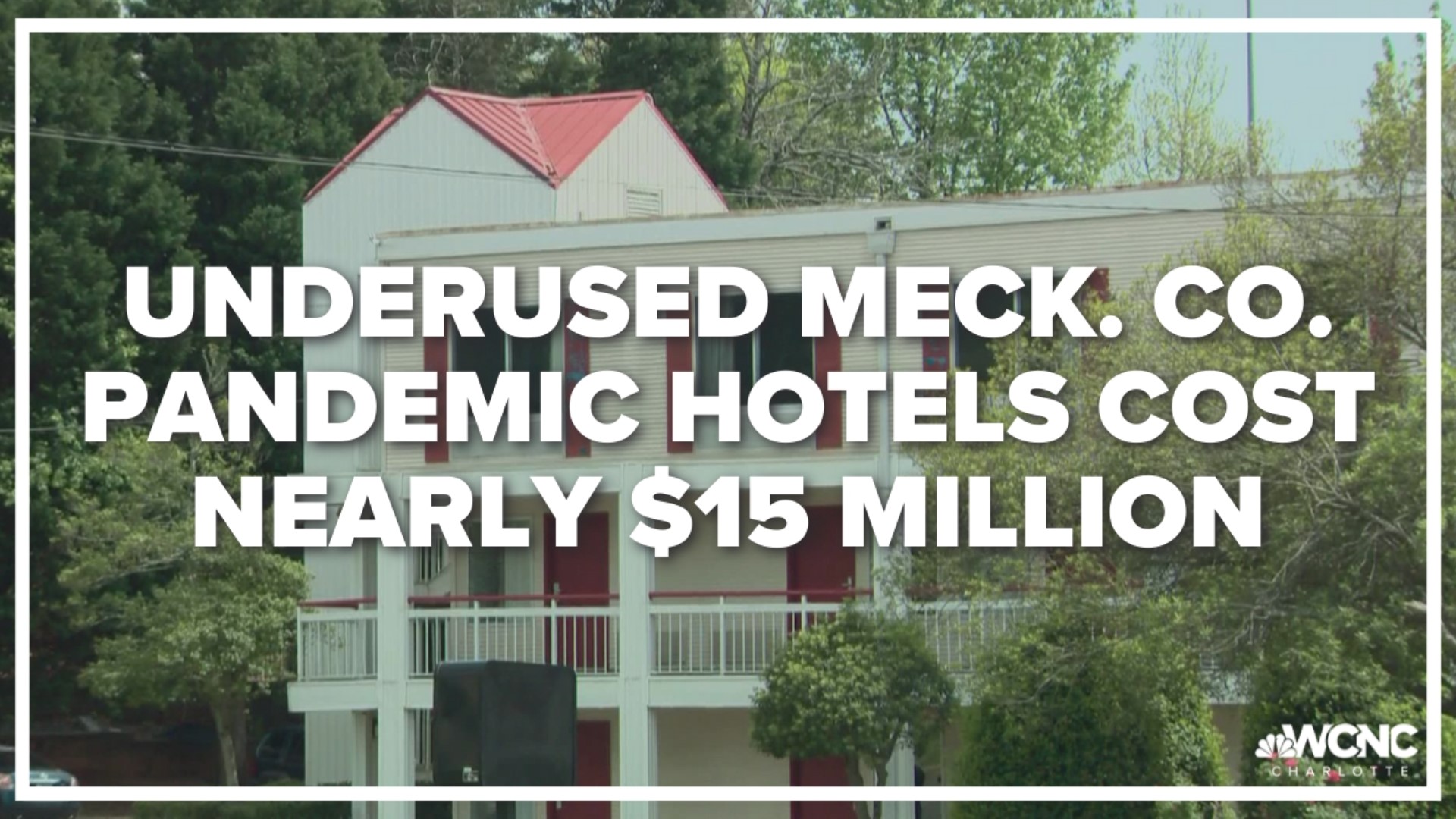MECKLENBURG COUNTY, N.C. — A pandemic program meant to keep infected people out of shelters, prevent the spread of COVID-19, protect the medically fragile and house others battling homelessness in Mecklenburg County cost nearly $15 million, according to public records.


Documents show Mecklenburg County opened four hotels at the start of the pandemic, but fewer than 2,000 people actually signed up for the temporary housing.
PREVIOUS COVERAGE: Mecklenburg County to close quarantine hotel
The isolation and quarantine hotel accounted for more than 40% of the total cost, yet only housed around 68 people a month -- well below capacity -- according to county documents.


There's no disputing the hotel helped people like Aaron Hall in their time of need. Hall visited Charlotte from Kansas City in 2020. He spent 10 days inside a former Econo Lodge near the airport while recovering from COVID-19. With no car, little money, and a highly contagious infection, the taxpayer-funded hotel spared him and the public from danger.
"It was a relief. I was super relieved," Hall told WCNC Charlotte. "It felt safe for me and safe for other people. I literally thought I was going to be living on the street for a little while."
Documents show Mecklenburg County leased 120 rooms at the Econo Lodge. Hall said when he stayed at the hotel about 10 others were there too.
The hotels were among four opened as part of a federal pandemic program: one for isolation and quarantine, another for people older than 60 with underlying health conditions and two to help relieve overcrowding in shelters.


"We wanted to make sure that we did not leave them behind and that we provided them with the proper care that they need to be safe and so that we can get them better," County Manager Dena Diorio said of the decision to open hotels in March 2020.
County records document 1,432 guest stays in all stayed at the isolation and quarantine hotel through December 2021, with those stays ranging from two to 17 days. Records show occupancy exceeded 100 only twice over 21 months.
In the month before the county closed the estimated $300,000-a-month hotel, former Health Director Gibbie Harris reported several days with no guests at all.
"As you can see, it's not terribly cost-effective," Harris told county commissioners in November 2021.
A spokesperson said the county could not itemize the specific expenses for each location, but records reveal the four pandemic hotels, which housed just under a combined 2,000 people, rang up a $14.7 million cost. The total expense included leases, delivered meals, guard and security services, hotel staffing and janitorial and custodial services.
"It is expected that FEMA will reimburse 100% of these expenses," Health Director Dr. Raynard Washington said.
In response to WCNC Charlotte's questions about the program, Mecklenburg County issued a statement Wednesday.
"Mecklenburg County provided these short-term housing options during the height of the pandemic to house our homeless neighbors recovering from, or to provide appropriate quarantine for, COVID-19," Deputy Public Information Director Andrew Fair said. "This strategy was not intended to be a long-term solution to homelessness, nor was high capacity always expected. This housing option was provided out of an abundance of caution for any close contacts of those with COVID-19 and was to fulfill our mission to serve everyone in our community in a compassionate manner. We have provided all information requested about these options and continue to work with our community to provide options to those in need of housing during emergencies such as COVID-19."
Other major cities signed up for the FEMA program too and in some, like Denver and several in California, records show unused hotel rooms also followed.
The California Department of Social Services created Project Roomkey to save lives and prevent hospital surges. As a result, a spokesperson said people were matched to sites based on their specific health needs.
"High risk, medically-vulnerable individuals are not sheltered in the same space as individuals in isolation or quarantine to avoid exposure and risk of spreading the virus," a DSS spokesperson told WCNC Charlotte. "Therefore, local occupancy rates vary depending on local transmission rates."


Some remain skeptical though.
"In some cities they had space and they simply didn't fill the space with people who were eligible," Citizens Against Government Waste President Tom Schatz told WCNC Charlotte. "It still didn't accomplish what it was supposed to do. It wasn't just North Carolina."
The national nonprofit's mission is to "eliminate waste, mismanagement, and inefficiency in government." Schatz said there's a lesson for the public here.
"I think taxpayers need to be more demanding about getting results for the money that they are spending," he said. "A lot of programs in Washington start out with good intentions, end up costing a lot of money and then when they don't work, it takes a very long time to determine that they simply should not do it anymore and the FEMA program is certainly a good example."
Aaron Hall is now far removed from his time in isolation, but he knows first-hand the value. The isolation and quarantine hotel was a saving grace, not just for him, but for more than 1,400 others with nowhere else to go.
"Just thinking about people who are in a situation where they are without any place to stay, I don't think that's ever a waste of money," Hall said.
In response to criticism, a FEMA spokesperson told WCNC Charlotte, "The purpose of this program was to help protect public health and save lives."
"FEMA established the Coronavirus Pandemic Non-Congregate Sheltering program to allow state, local, tribal and territorial governments to apply for reimbursement of costs associated with non-congregate sheltering," a FEMA spokesperson said. "The purpose of the program was to help protect public health and save lives. Determination of need was in compliance with CDC guidelines and reimbursement is based on actual expense incurred for sheltering of eligible COVID-related cases."
BEHIND THE STORY:
Why did WCNC Charlotte start investigating?
WCNC Charlotte first learned of the expense at a Mecklenburg County Board of County Commissioners meeting in November. At the time, the former health director mentioned a monthly cost of approximately $300,000 coupled with few people staying at the isolation and quarantine hotel. That prompted WCNC Charlotte to file local and federal public records requests related to the taxpayer-funded program to find out the extent of its underutilization.
What did the county say in response?
Not much. Since late March, WCNC Charlotte sent more than a dozen emails, which garnered limited responses, and left two voicemails, with no return phone calls. In addition, a county spokesperson missed two separate deadlines given by WCNC Charlotte, including earlier this week. Only after WCNC Charlotte escalated concerns and emailed the communications manager ahead of publication Wednesday did the county clarify specifics of the four hotels and provide a formal statement.
Will FEMA reimburse 100% of the cost?
Mecklenburg County believes so. However, North Carolina Emergency Management Public Information Officer Keith Acree told WCNC Charlotte the program only reimburses rooms that are used.
"FEMA Public Assistance is a reimbursement program, where local governments can be reimbursed for eligible expenses, in this case actual hotel room nights used to house people affected by COVID, or needing isolation due to COVID," he said. "Not sure how underutilization equates to waste in a program where only rooms that are used can be reimbursed."
FEMA lays out the specifics of its program here.
"FEMA continues to work with the applicant and the state of North Carolina on this and other pandemic-related projects," a FEMA spokesperson told WCNC Charlotte. "All claimed costs must be necessary and reasonable and are subject to program eligibility and other federal requirements."
Hunter Sáenz contributed to this report
Contact Nate Morabito at nmorabito@wcnc.com and follow him on Facebook, Twitter and Instagram.

